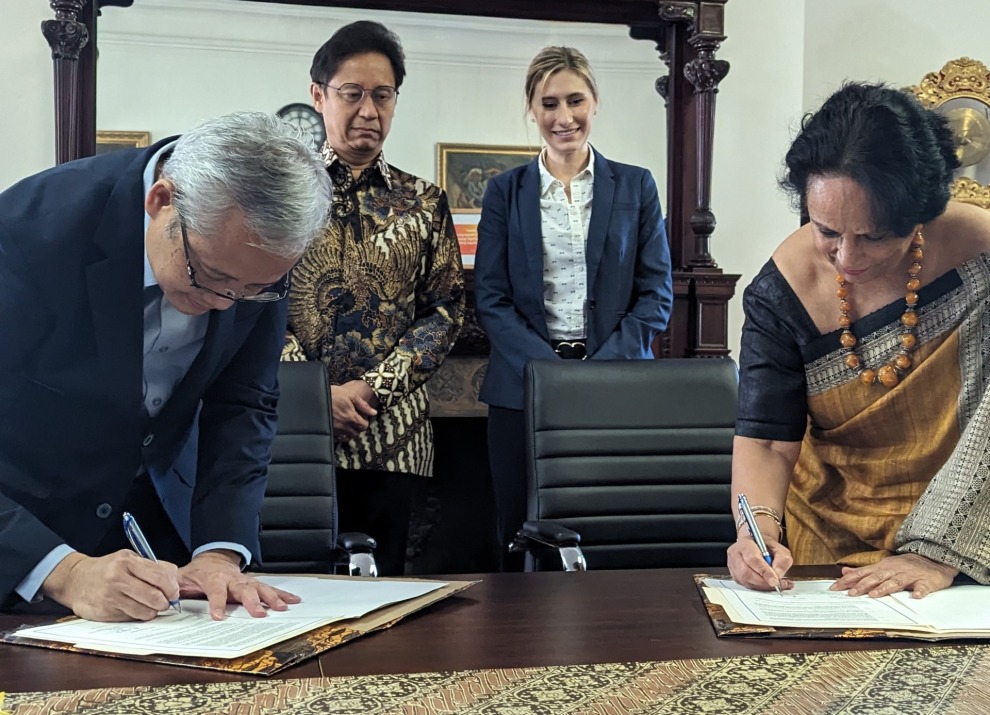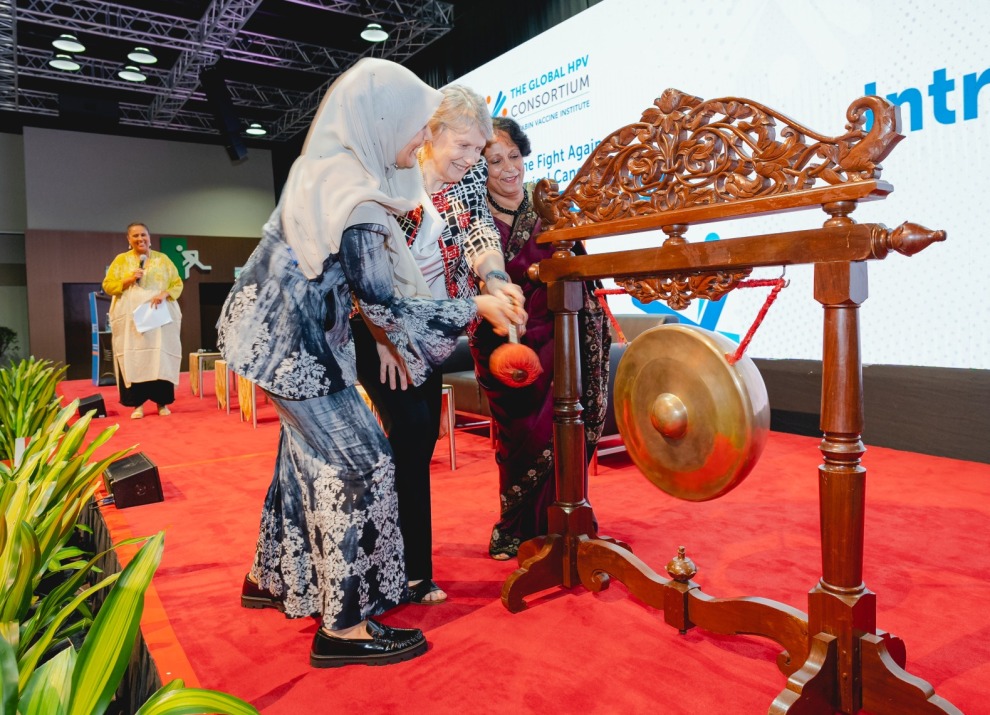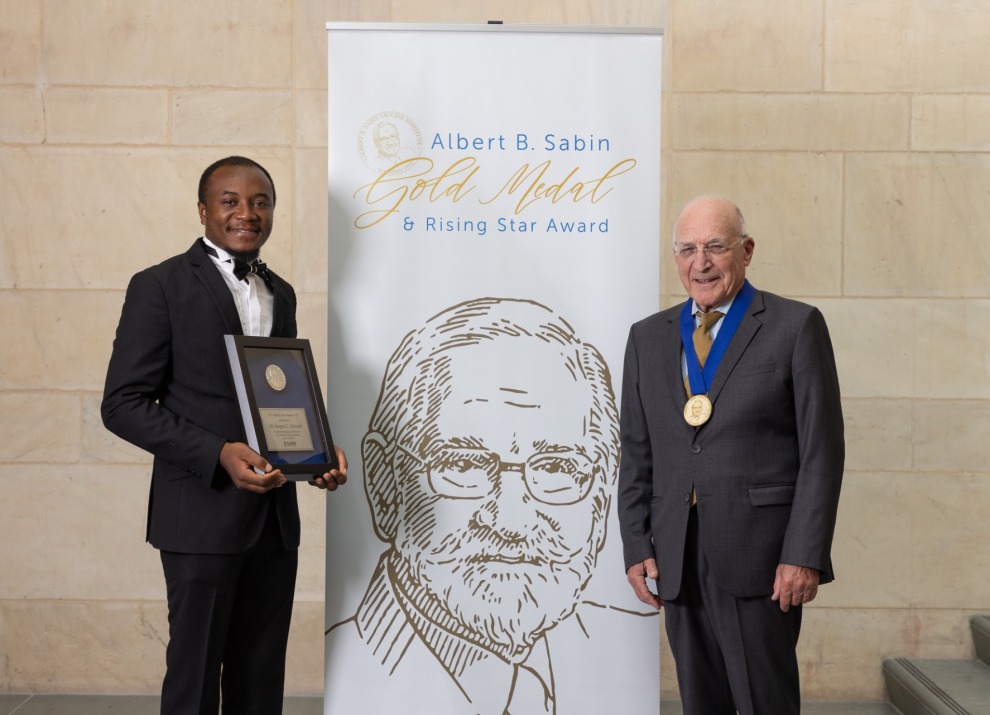Prestigious Sabin Gold Medal Awarded to Physician William S. Jordan, MD

Sabin Vaccine Institute to Recognize 2004 Medal Honoree at May Ceremony
NEW CANAAN, CT—William S. Jordan, Jr., MD, physician, teacher, and noted vaccine researcher will receive the prestigious 2004 Albert B. Sabin Gold Medal at a ceremony on May 25, 2004. Dr. Jordan is the twelfth recipient of this recognition by the scientific community, awarded annually by the Sabin Vaccine Institute to honor achievements by vaccinologists and infectious disease experts. The ceremony will be held at the Crystal Gateway Marriott in Arlington, Virginia in conjunction with the 2004 Conference on Vaccine Research.
Dr. Jordan’s distinguished career in the field of preventive medicine spans more than 60 years as a practicing physician, dedicated teacher, and noted infectious disease researcher. “There are few names in vaccine research as recognizable and few who have contributed as much to this life-saving field as William Jordan,” said H.R. Shepherd, chairman of the Sabin Vaccine Institute.
Dr. Jordan established an annual scientific review, known as the Jordan Report, considered by many in the scientific community to be the most complete reference available on vaccine research and development today. During the course of his career he advanced national and global disease prevention strategies as well as promotion of vaccine research. He helped launch a unique program at the National Institute of Allergy and Infectious Diseases that today serves to focus needed attention and resources on new vaccines and vaccine improvements.
A graduate of Harvard Medical School, Dr. Jordan held faculty posts at the Western Reserve University in the Department of Preventive Medicine, with the University of Virginia School of Medicine as chair of Preventive Medicine, and subsequently at the University of Kentucky as dean of the College of Medicine. He also served as director of the Commission of Acute Respiratory Diseases of the Armed Forces Epidemiological Board. He spent a sabbatical year at the London School of Hygiene and Tropical Medicine.
From 1976 to 1987, Dr. Jordan served as director of the Microbiology and Infectious Diseases Program at the National Institute of Allergy and Infectious Diseases. A key part of his mission there, where he remains active today on a voluntary basis, was the advancement of vaccine research initiatives. He is author or co-author of more than 100 papers, textbook chapters and two books.
Background on the Sabin Gold Medal
The Sabin Gold Medal is awarded by the Albert B. Sabin Vaccine Institute to recognize individuals who personify exemplary contributions to disease prevention. The selection process begins with canvassing 300 members of the scientific community, particularly those whose specialization is in vaccinology and immunology, who submit their nominations to the Sabin Gold Medal Advisory Committee. The Sabin Gold Medal Advisory Committee is composed of previous recipients and is chaired by Maj. Gen. Philip K. Russell, MD (USA Ret.), who is the seventh recipient of the honor.
The list of previous Sabin Gold Medal recipients includes some of the foremost contributors to the modern era of public health. D.A. Henderson, MD, recipient of the first Sabin Gold Medal in 1994, led the global eradication of smallpox. Ciro de Quadros, MD, MPH, recipient in 2000, also worked on the smallpox eradication effort and led the polio eradication effort for the Americas. His ongoing efforts on the polio and measles front, among others, have continued while he serves as director of International Programs at the Sabin Vaccine Institute.
Noted vaccine developers are among the recipients. Samuel Katz, MD, honored in 2003, contributed to the development of the attenuated measles vaccine used today. Stanley A. Plotkin, MD, honored in 2002, developed the rubella vaccine. In 2001, the medal was awarded to John Robbins, MD, developer of the Haemophilus influenzae type b vaccine, which has led to a dramatic decline in the number of infants and children suffering from meningitis, osteomyelitis and pneumonia. The 1997 medal went to Maurice R. Hilleman, PhD, DSc, widely acclaimed as the “dean of vaccines” and credited with developing more vaccines than any other person in history.
The medal was awarded to two individuals in 1998: Myron M. Levine, MD, DTPH, distinguished vaccine researcher and policy advisor, and Allen C. Steere, MD, who identified Lyme disease. The late Joseph L. Melnick, PhD, received the medal in 1996, and is remembered for groundbreaking work in polio research and for training more than 100 leading virologists and vaccine developers. In 1995, the medal was awarded to Robert M. Chanock, MD, who worked in Albert Sabin’s Cincinnati laboratory and who was the first researcher to identify and characterize the respiratory syncytial virus.
With the singular achievements of the Sabin Gold Medal recipients to date, the prestige of this award continues to grow and the wealth of scientific benefit to society it represents remains extraordinary.
Editor’s Note: For information on the Vaccine Research Conference, visit the website of the National Foundation for Infectious Diseases, www.nfid.org.
The mission of the Albert B. Sabin Vaccine Institute is to save lives by advancing development of new vaccines and increasing immunization rates throughout the world. Founded in 1993, the Institute pursues Dr. Albert Sabin’s vision of a world protected from disease by vaccines. Sabin Institute colloquia convene leaders in academia, government, industry, and philanthropy to explore solutions to problems in vaccine research and development, and promote dialogue to prevent infectious diseases and treat cancer. As an immunization advocate, it helps policy makers shape sound public health policies and informs the public about the importance of vaccinations. The Sabin Institute’s Hookworm Vaccine Initiative is working to develop a vaccine to prevent an infection that afflicts more than one billion individuals, and is a leading cause of anemia and malnutrition in the developing world.







